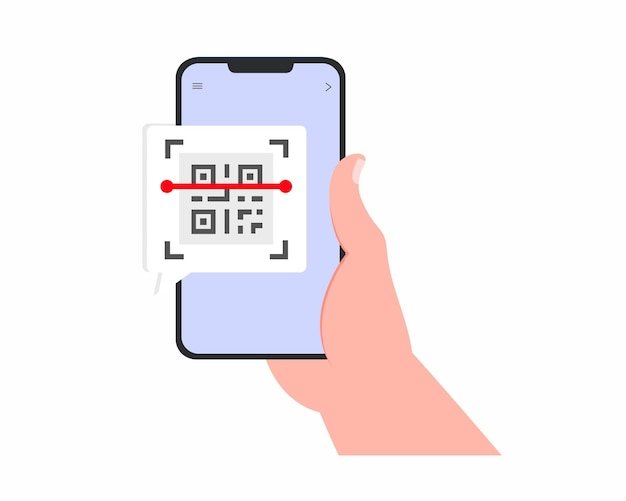Phase One Virtual Call Center: Revolutionizing Remote Work
✅Phase One Virtual Call Center: Transforming remote work with cutting-edge technology, boosting productivity, and redefining customer service excellence!
The Phase One Virtual Call Center is revolutionizing remote work by leveraging cutting-edge technology to provide seamless communication and efficient service management. This innovative approach allows companies to operate call centers without the need for physical infrastructure, thereby reducing costs and increasing flexibility for both employers and employees.
In this article, we will explore the features and benefits of the Phase One Virtual Call Center, highlighting how it is transforming the landscape of remote work. With a focus on advanced software solutions, robust security measures, and comprehensive training programs, Phase One is setting a new standard for virtual call centers.
Features of Phase One Virtual Call Center
The Phase One Virtual Call Center offers a host of features designed to enhance productivity and ensure high-quality customer service. Key features include:
- Cloud-Based Infrastructure: Utilizing cloud technology, the call center can be accessed from anywhere, allowing for a truly remote workforce.
- Advanced Call Routing: Intelligent routing algorithms ensure that calls are directed to the most qualified agent, improving resolution times and customer satisfaction.
- Real-Time Analytics: Managers can monitor performance through detailed analytics dashboards, providing insights into call volume, agent performance, and customer feedback.
- Security Protocols: Robust security measures, including end-to-end encryption and multi-factor authentication, protect sensitive customer data.
- Integration with CRM Systems: Seamless integration with customer relationship management systems ensures that agents have access to all necessary information to assist customers effectively.
Benefits for Businesses
Adopting the Phase One Virtual Call Center offers numerous benefits for businesses, including:
- Cost Savings: Eliminating the need for physical office space and related overhead costs can result in significant savings.
- Scalability: Easily scale operations up or down based on demand without the constraints of physical infrastructure.
- Enhanced Flexibility: Remote work options attract a larger talent pool and can lead to higher employee satisfaction and retention.
- Improved Business Continuity: In the event of natural disasters or other disruptions, a virtual call center ensures continued operations.
Benefits for Employees
For employees, the Phase One Virtual Call Center offers several advantages, such as:
- Work-Life Balance: Remote work eliminates commute times and allows for greater flexibility in managing personal and professional responsibilities.
- Access to Opportunities: Employees can work from any location, broadening access to job opportunities that may not be available locally.
- Professional Development: Comprehensive training programs and continuous learning opportunities help employees enhance their skills and advance their careers.
Case Study: Successful Implementation
To illustrate the impact of the Phase One Virtual Call Center, consider a case study of Company XYZ. After transitioning to the virtual call center model, Company XYZ experienced a 25% reduction in operational costs and a 15% increase in customer satisfaction scores. Additionally, employee turnover decreased by 20%, highlighting the effectiveness of remote work in improving employee retention.
Tecnologías Clave que Impulsan Phase One Virtual Call Center
When it comes to virtual call centers, the technologies driving them play a crucial role in their success. At Phase One Virtual Call Center, several key technologies are at the forefront, revolutionizing the landscape of remote work.
1. Cloud-Based Communication Systems
One of the foundational technologies powering Phase One’s virtual call center is its use of cloud-based communication systems. By leveraging cloud technology, agents can handle calls from anywhere with an internet connection, ensuring seamless and flexible operations. These systems also offer advanced features such as automatic call distribution and real-time monitoring, enhancing productivity and customer service.
2. Voice over Internet Protocol (VoIP)
VoIP is another essential technology that drives Phase One’s virtual call center. Through VoIP, agents can make and receive calls over the internet, eliminating the need for traditional phone lines. This not only reduces operational costs but also enables easy scalability as the call center grows. Additionally, VoIP provides high-quality audio, ensuring clear communication with customers.
3. Data Analytics Tools
Data analytics tools play a significant role in optimizing performance at Phase One Virtual Call Center. By analyzing call data, customer interactions, and agent performance metrics, the call center can identify trends, improve processes, and enhance the overall customer experience. For example, by tracking average handling time and first call resolution, managers can make data-driven decisions to boost efficiency.
4. Virtual Desktop Infrastructure (VDI)
Virtual Desktop Infrastructure is instrumental in ensuring security and accessibility at Phase One’s virtual call center. With VDI, agents can securely access the necessary applications and data from any location, maintaining consistency in operations. This technology also simplifies IT management by centralizing control and updates, leading to reduced downtime and enhanced security.
By harnessing these key technologies, Phase One Virtual Call Center is at the forefront of the remote work revolution, setting a new standard for efficiency, flexibility, and customer satisfaction in the industry.
Beneficios para Empresas al Utilizar Phase One Virtual Call Center
When it comes to virtual call centers, Phase One stands out as a game-changer in the realm of remote work. The benefits it brings to companies are numerous and significant, making it a top choice for businesses looking to optimize their customer service operations. Let’s delve into some of the key advantages for companies leveraging the Phase One Virtual Call Center:
1. Enhanced Flexibility and Scalability
One of the primary benefits of utilizing Phase One is the flexibility it offers to businesses. Whether your call volume fluctuates throughout the day or you need to quickly scale your operations to meet customer demand, this virtual call center solution provides the agility required to adapt to changing circumstances seamlessly.
2. Cost-Efficiency
Implementing a virtual call center like Phase One can lead to substantial cost savings for companies. By transitioning to a remote work model, businesses can reduce expenses associated with maintaining a physical call center, such as rent, utilities, and equipment. Additionally, companies can tap into a global talent pool, allowing them to hire skilled agents at competitive rates.
3. Improved Agent Productivity
Agent productivity is a crucial factor in the success of any call center. With Phase One’s advanced tools and technologies, agents can handle customer inquiries more efficiently, access relevant information quickly, and collaborate with team members seamlessly. These streamlined processes result in faster resolution times and higher customer satisfaction rates.
4. Data-Driven Insights
Phase One Virtual Call Center provides real-time analytics and reporting functionalities that empower companies to gain valuable insights into their customer interactions. By analyzing data on call volumes, wait times, and customer feedback, businesses can make informed decisions to optimize their operations, enhance service quality, and drive overall performance improvements.
Overall, the benefits of incorporating Phase One Virtual Call Center into your business operations are clear. From increased flexibility and cost-efficiency to improved agent productivity and data-driven insights, this innovative solution can revolutionize the way companies approach customer service in the digital age.
Frequently Asked Questions
1. What is Phase One Virtual Call Center?
Phase One Virtual Call Center is a remote call center solution that allows agents to work from anywhere with an internet connection.
2. How does Phase One Virtual Call Center benefit businesses?
Businesses can save on overhead costs, access a larger talent pool, and provide 24/7 customer support by using Phase One Virtual Call Center.
3. What technology is used in Phase One Virtual Call Center?
Phase One Virtual Call Center utilizes cloud-based software, VoIP technology, and advanced analytics to streamline operations and improve customer service.
4. Can agents working in Phase One Virtual Call Center access training and support?
Yes, agents receive comprehensive training and ongoing support to ensure they have the tools and knowledge to succeed in their roles.
5. How can businesses get started with Phase One Virtual Call Center?
Businesses can contact Phase One Virtual Call Center for a consultation and demo to see how the platform can meet their specific needs.
6. Is Phase One Virtual Call Center suitable for small businesses?
Yes, Phase One Virtual Call Center can be customized to fit the needs of small businesses looking to enhance their customer service operations.
- Remote call center solution.
- Cost-effective alternative to traditional call centers.
- Access to a global talent pool.
- 24/7 customer support capabilities.
- Cloud-based software and VoIP technology.
- Comprehensive training and support for agents.
- Customizable for businesses of all sizes.
Feel free to leave your comments and questions below. Check out our other articles for more insights on remote work and customer service solutions.







